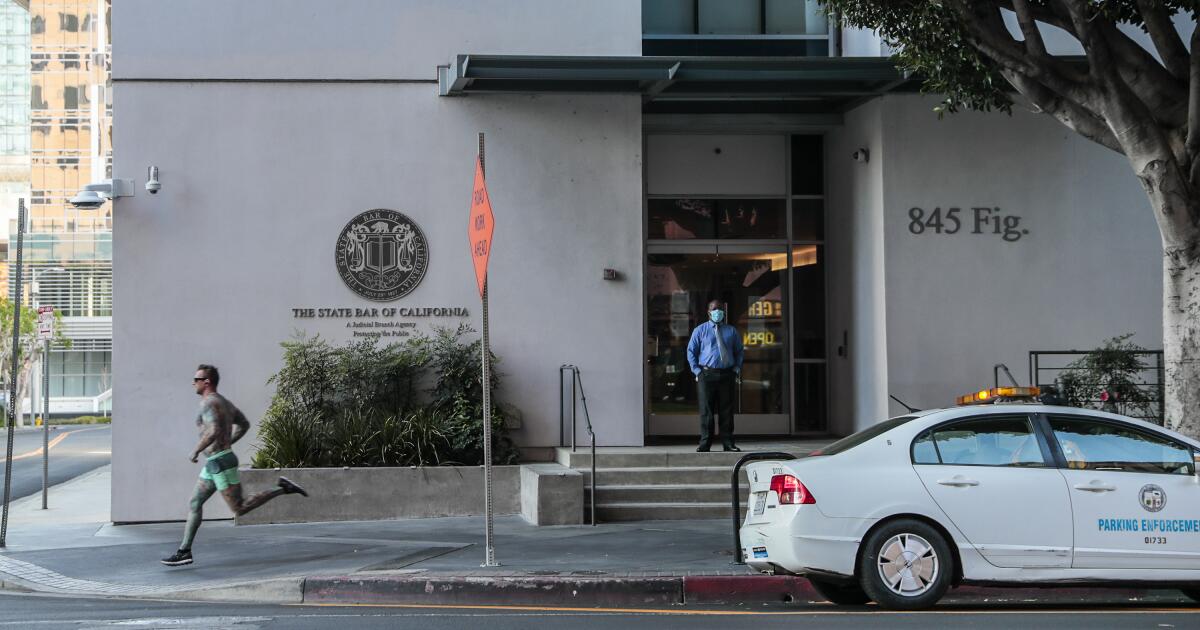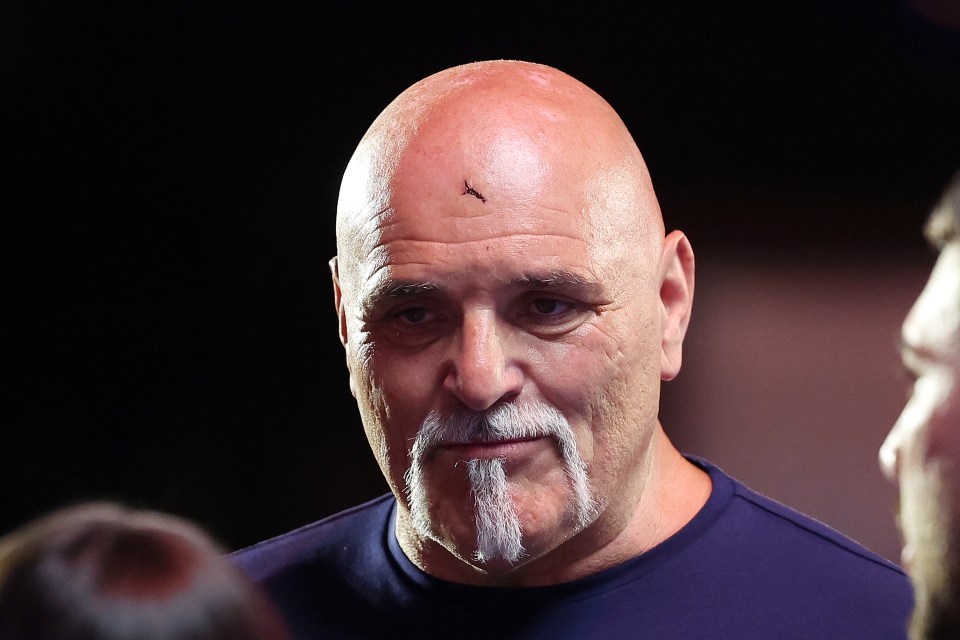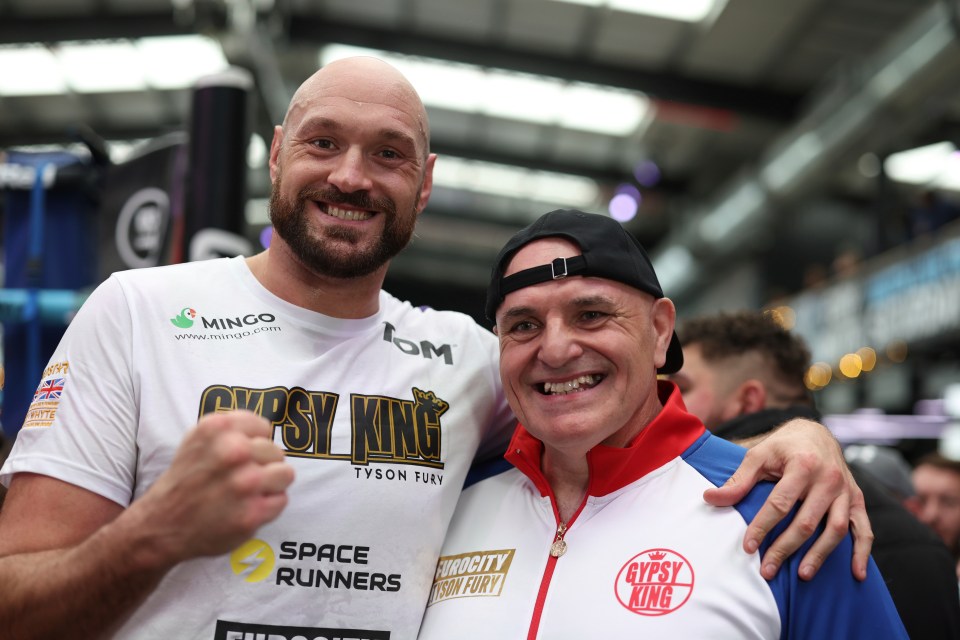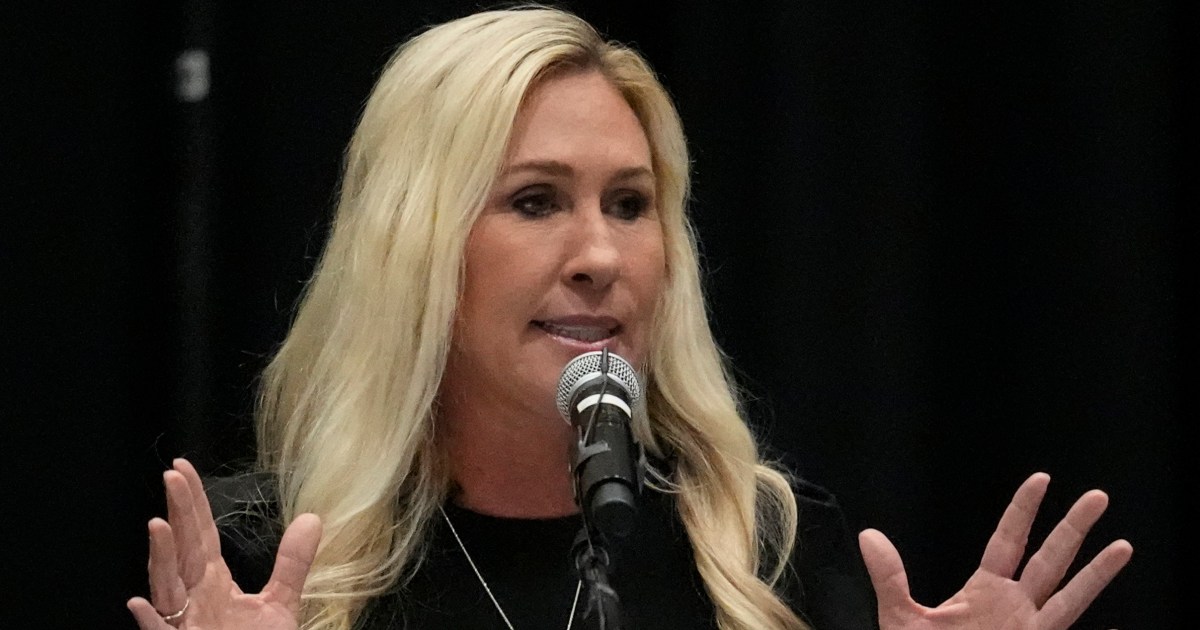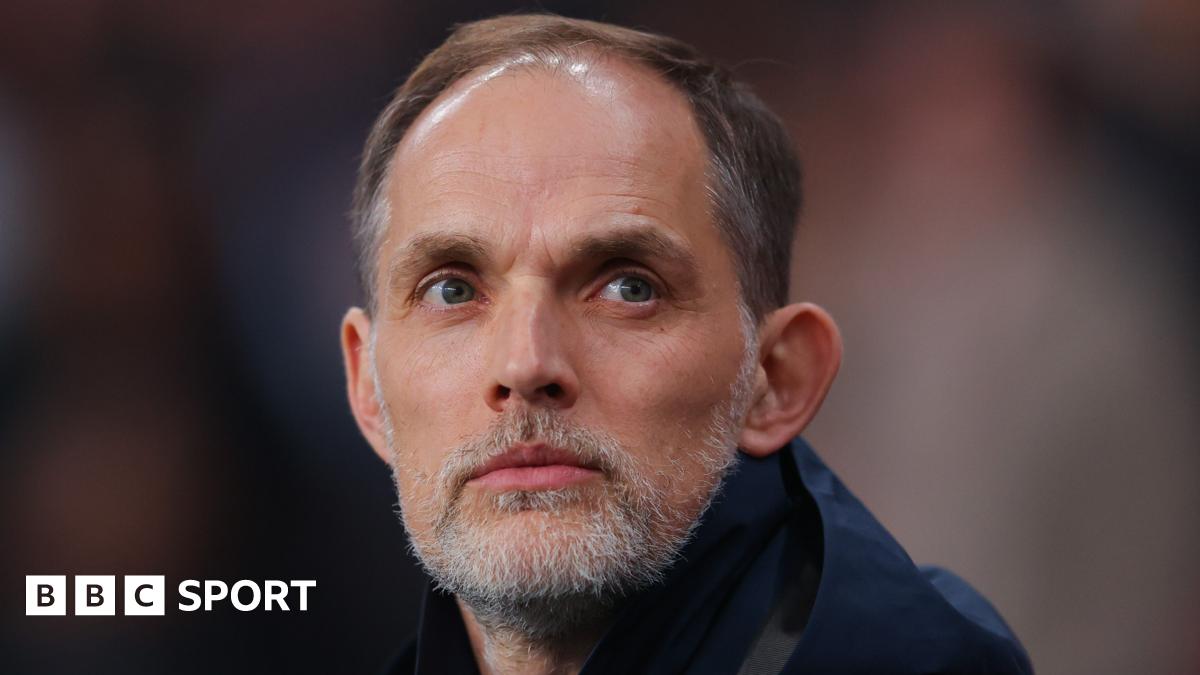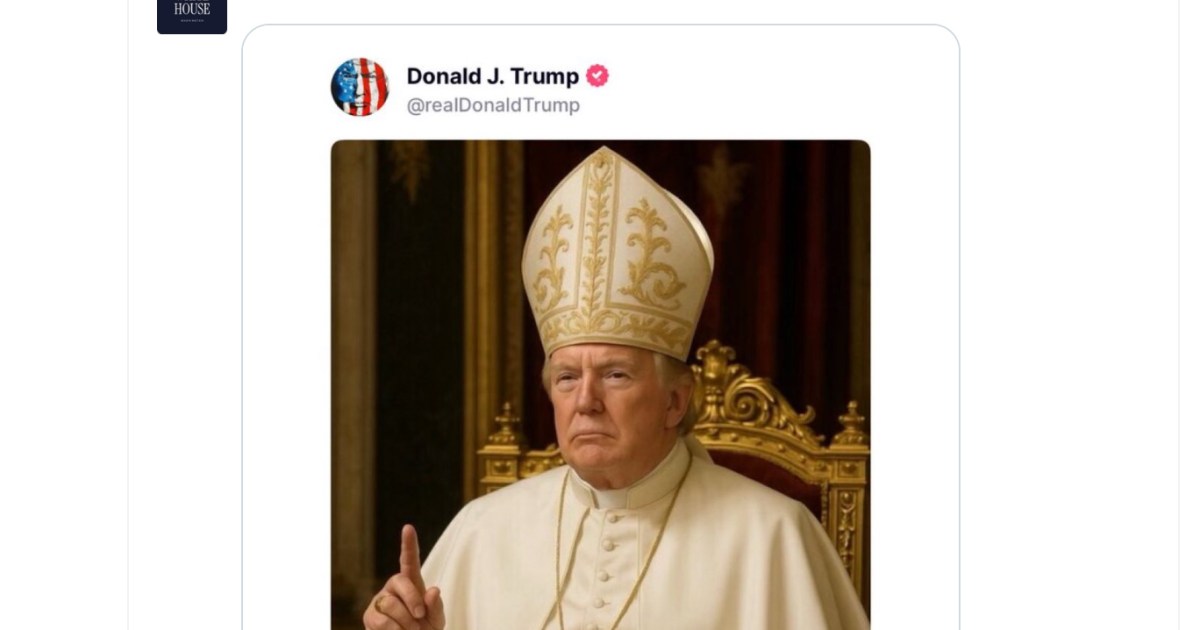Music mogul ‘Diddy’ faces allegations of abuse during first day of US trial | Courts News
A number of witnesses have taken to the stand in the trial of Sean “Diddy” Combs, who is facing allegations of racketeering and sex trafficking during his time as head of an entertainment empire.
Testimony in the trial began on Monday after the final phase of jury selection and opening statement from lawyers. Combs, donning a light-grey sweater, gave a thumbs-up to supporters in the courtroom in New York City in the United States.
“For 20 years, the defendant, with the help of his trusted inner circle, committed crime after crime,” Assistant US Attorney Emily Johnson told the court. “That’s why we are here today. That’s what this case is about.”
A number of witnesses testified that they had experienced physical violence, intimidation, and manipulation by Combs, while the rapper’s lawyers said that he has been charged with the wrong categories of crimes and “his kinky sex and his preferences for sex” were being portrayed as nefarious.
Attorney Teny Geragos told jurors that they may end up thinking Combs was a “jerk” or “kind of mean”, but that he is not being charged “with being mean or a jerk”.
“This case is about voluntary choices made by capable adults in consensual relationships,” Geragos said during her opening statement.
Johnson, the US attorney, said that Combs “viciously attacked” women who refused to participate in the parties that were called “freak offs”.
“They will tell you about some of the most painful experiences of their lives. The days they spent in hotel rooms, high on drugs, dressed in costumes to perform the defendant’s sexual fantasies,” Johnson told jurors of testimony from victims in the case.
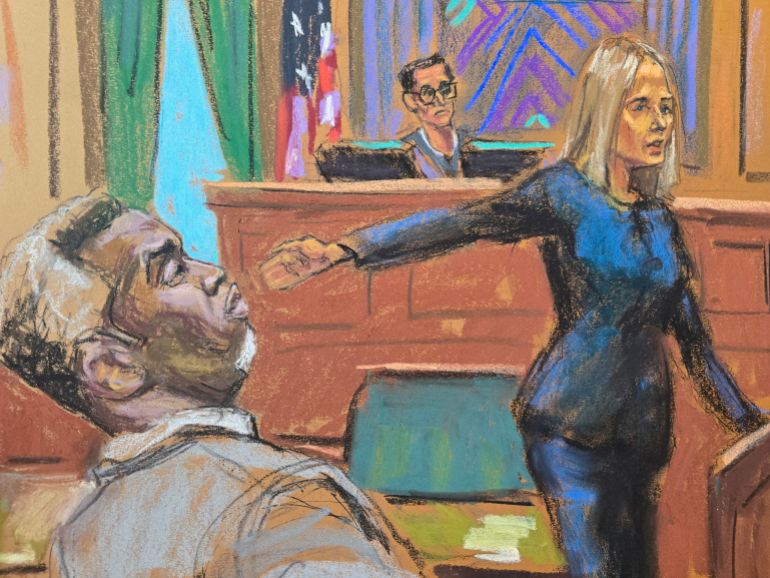
‘She was shaking’
The courtroom became audibly silent as a video of Combs beating and kicking his former girlfriend Casandra Ventura in 2016 was shown.
A stripper named Daniel Phillip testified that Combs had thrown a liquor bottle towards Ventura before grabbing her by the hair and dragging her screaming into another room, where Phillip says he heard Combs yelling and beating Ventura.
“She literally jumped into my lap and she was shaking, like literally her whole entire body was shaking. She was terrified,” Phillip testified of Ventura.
Geragos conceded that Combs is prone to jealousy and had committed an act of “horrible, dehumanising violence” in the video shown to jurors, but that it was evidence of domestic abuse, not alleged acts of sex trafficking or racketeering that are at the centre of the case.
Prosecutors say that Combs, who faces a mandatory minimum sentence of 15 years in prison if convicted of all five felony counts to which he had pleaded not guilty, pushed women to engage in drug-fuelled parties and then blackmailed them with videos of their encounters.
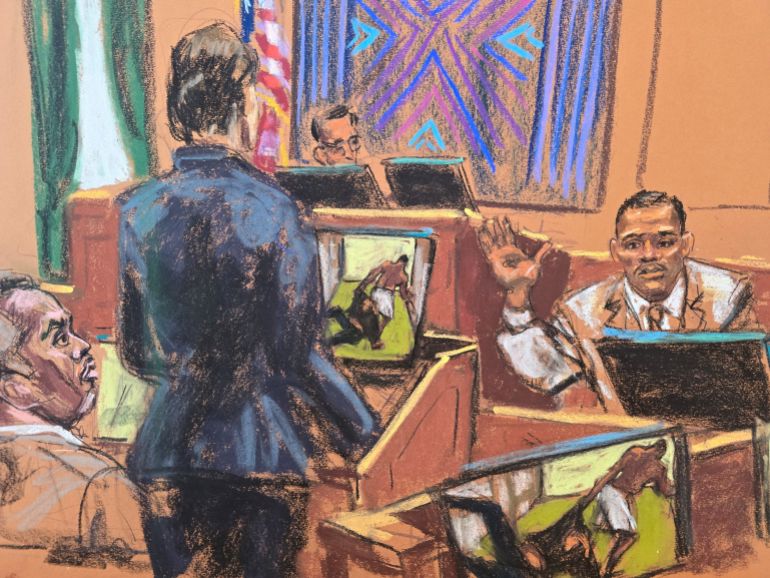
Combs’s status as a high-profile entertainer has brought substantial attention to the trial, as well as larger debate about how powerful figures in sectors such as entertainment, business, sports, and politics often evade accountability for acts of abuse.
As the case began, the jury and alternates – 12 men and six women – were seated in the courtroom. Opening arguments started after the judge finished explaining the law as it relates to this trial, along with incidentals such as that a light breakfast will be provided to the jury in addition to lunch.
The jury for this case is essentially anonymous, meaning their identities are known to the court and the prosecution and defence, but will not be made public.
“We will keep your names and identities in confidence,” Subramanian told jurors.
It’s a common practice in federal cases to keep juries anonymous, particularly in sensitive, high-profile matters where juror safety can be a concern. Juror names also were kept from the public in US President Donald Trump’s criminal trial last year in state court in New York.
Subramanian urged jurors to judge the case only based on the evidence presented in court. It’s a standard instruction, but it carried added significance in this high-profile case, which has been the subject of intense media coverage.
“Anything you’ve seen or heard outside the courtroom is not evidence,” the judge said. “It must be disregarded.”
